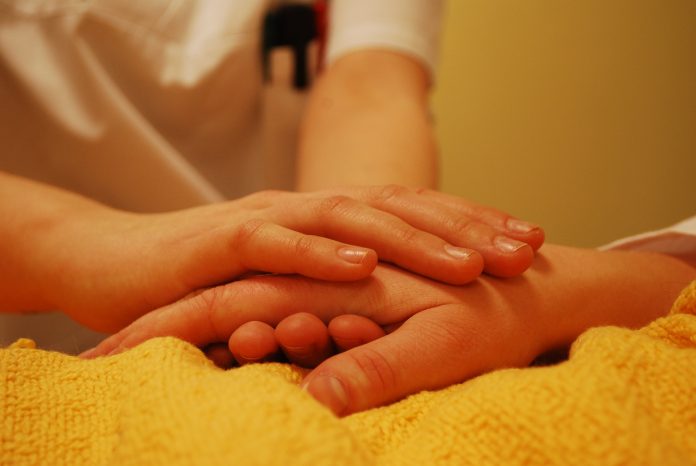I used to think I was a clever person, but the way I lived my life when I was younger was not so clever, as I did not care for myself at all. I smoked like a chimney, drank like a fish, and did other things as a consequence, that no doctor (or any sane person) would recommend. But because I was smart, I thought I could get away with my behaviour, that is, until my body showed me otherwise and brought me to a stop. I have since come to realise that learning to care for myself is the smartest thing I can do, and now that I have a body that is deeply cared for, I am much more genuinely intelligent than I was when I was young… and much more able to truly care for other people too…
Doctors are clever people
Doctors are thought of as clever people, intellectually and practically able to care for other people when they are sick, but how intelligent are we really if in the process of caring for others we fail to care for ourselves?
We have usually been told we are smart from a very young age, and our intellectual prowess has been fostered and celebrated. Sometimes we have been placed in gifted, talented or other ‘special’ programmes in school and our intellect has been seen and recognised as special, different from and better than our peers.
Some of us had other talents as well, but many chose to just focus on the intellectual side of life. We became identified with and celebrated for our minds and what we could do with them.
We may not have thought that we were attached to this identity, or competitive at school – as doing well came easily to us and we crushed the competition – but when we get to university, we come together with a whole lot of other gifted, talented and smart people, all competing for the same positions, and the game is on.
It becomes all about the intellect; gathering, storing and regurgitating information to pass exam after exam after exam. Learning to take histories, perform examinations, make diagnoses, formulate treatment plans and practise procedures becomes an essential part of this process, and our focus is largely on the information and techniques and not so much on care and connection with the people we are learning to look after.
And our own bodies can become neglected, overridden, even ravaged in this process.
The stress of medical school is horrendous
The stress of medical school is horrendous. Medical students have high rates of mental and physical stress and illness. This has not been well recognised as we do not publicly admit to stress, either to colleagues or to our supervisors, for fear of being seen as not up to the job, not having what it takes to be a doctor.
Often supervising doctors take the tough approach, the “I had to do it, so you have to do it too” school of learning, which perpetuates the bastardised, cruel, and bullying system they too suffered as students.
There is a reality to learning to deal with stress, fatigue, and intensity as a young doctor, as we are often placed in situations where we do need to put the needs of others before ourselves, but does it really have to be this way, all of the time?
There is a perception that doctors are elite, like crack troops in the army, and that they have to be tough to do a good job. But our job is not to kill people, it is to keep them alive and support them to return to health. How can we do this if we are constantly under stress and our own bodies are struggling?
Can we truly care for other bodies if we are not caring for our own?
Fatigue is dangerous
It is now well known that fatigue is dangerous, and studies have shown that being awake for 18 continuous hours is the equivalent of having a blood alcohol level of 0.05%, the legal driving limit; and being awake for 24 hours is like having a blood alcohol level of 0.10% when it comes to making decisions and performing tasks.
We would not want our doctor to be drunk, so why are we willing to settle for a tired one? And why are we willing to be a tired doctor, if we know this is true?
We would not want our airline pilot to be working under these conditions, and they are not permitted to do so, as the risks are known, so why do we knowingly allow tired doctors to make vital decisions about our health and to operate on our bodies?
The collective human body does not take a break from illness, disease, accident and injury, and so there is always work for doctors to do, but there are ways in which we can live and work that can lighten the load.
Physicians’ health practices strongly influence patient practices
Chronic disease is now the leading cause of death and disability in the world, and the increasing rates of these diseases is overwhelming our health care systems.
According to the WHO, 80% of chronic disease is lifestyle related, and therefore modifiable by addressing lifestyle factors, so surely it would make sense to teach doctors to care for themselves and to share this way of living with their patients from a body that lives it.
The major causes of chronic diseases are known – smoking, eating poorly, eating excessively, and being sedentary – and if these risk factors were eliminated, at least 80% of all heart disease, stroke, and type 2 diabetes and 40% of cancer would be prevented.
Studies have shown that doctors who care for themselves are more likely to recommend self-care to their patients. The health of doctors is important, because we serve as role models and because we are more likely to counsel our patients about healthy behaviours if we practise them ourselves.
Is there a simple solution to our collective health problems?
We collectively complain about how long we must wait to get a doctor’s appointment, how long we have to wait in the waiting room, how little time the doctor spends with us, how crowded the emergency department is, how little time we as doctors get to spend with our families, how tired and overworked we are, but what if there were a simple solution to all this that did not involve training many more doctors or spending a great deal more money?
Could the answer be as simple as teaching doctors to care for ourselves?
We spend so much time and energy learning obscure facts and figures while we are training, then going to conferences to upskill where we are told about things that are rare and/or remote from our everyday practice.
What if we were to allocate some of that time and energy to teaching simple principles and practices of self-care?
To say that we do or should already know them is naïve; many doctors are quite ignorant when it comes to matters of nutrition and exercise, perhaps deliberately so. We are not in general great models of health, and we cannot hope to inspire our patients to live in a healthy way if we neither know or care what that means nor how true changes can be made.
True self-care is simple, and there are many articles on this site to help you make a start, but it does require a willingness to change, and to live in a way that supports our bodies and beings.
Perhaps it is time for a change of attitude, and heart, where we make such simple self-caring principles part of our daily practice, instead of thinking we have to sacrifice our own lives to save others.
I have certainly found self-care to make a profound difference in my own life and without saying much at all, but living and working in a way that is caring for myself and others equally, have inspired many people to make true changes in their lives too. Why not give it a go?










This is such an important subject to share, Anne, I love how clearly you have expressed the urgent need for doctors to learn to truly care for themselves. The number of suicides, break-downs in health, physical and mental over the past few years among doctors and other medical personnel is a very clear example of the need for those in the medical field to really look at the way that they are living, and learn to lessen the stress on themselves by loving self care. How else will they be able to carry out their job of caring for others successfully? They have to learn how to take the stress off themselves. It is time to bring it into the curriculum for all doctors in training, as well as begin the conversation within the fraternity as you have done here.
Is it possible that if we do not truly care for ourselves, we really do not know how to truly care for somebody else?
There is no substitute for experience.
This is so true, Ken. We can say what we like, but people always know whether we are speaking from our heads, or from the lived experience of our bodies.
It is shocking (though not surprising) to read that lack of sleep has the same effect as alcohol after 18 -24 hours, and that doctors are sometimes working under those conditions … what a terrible practice to model to younger doctors! It is true that doctors can only model the lifestyle changes that are so needed if they self-care first. Such an important topic.